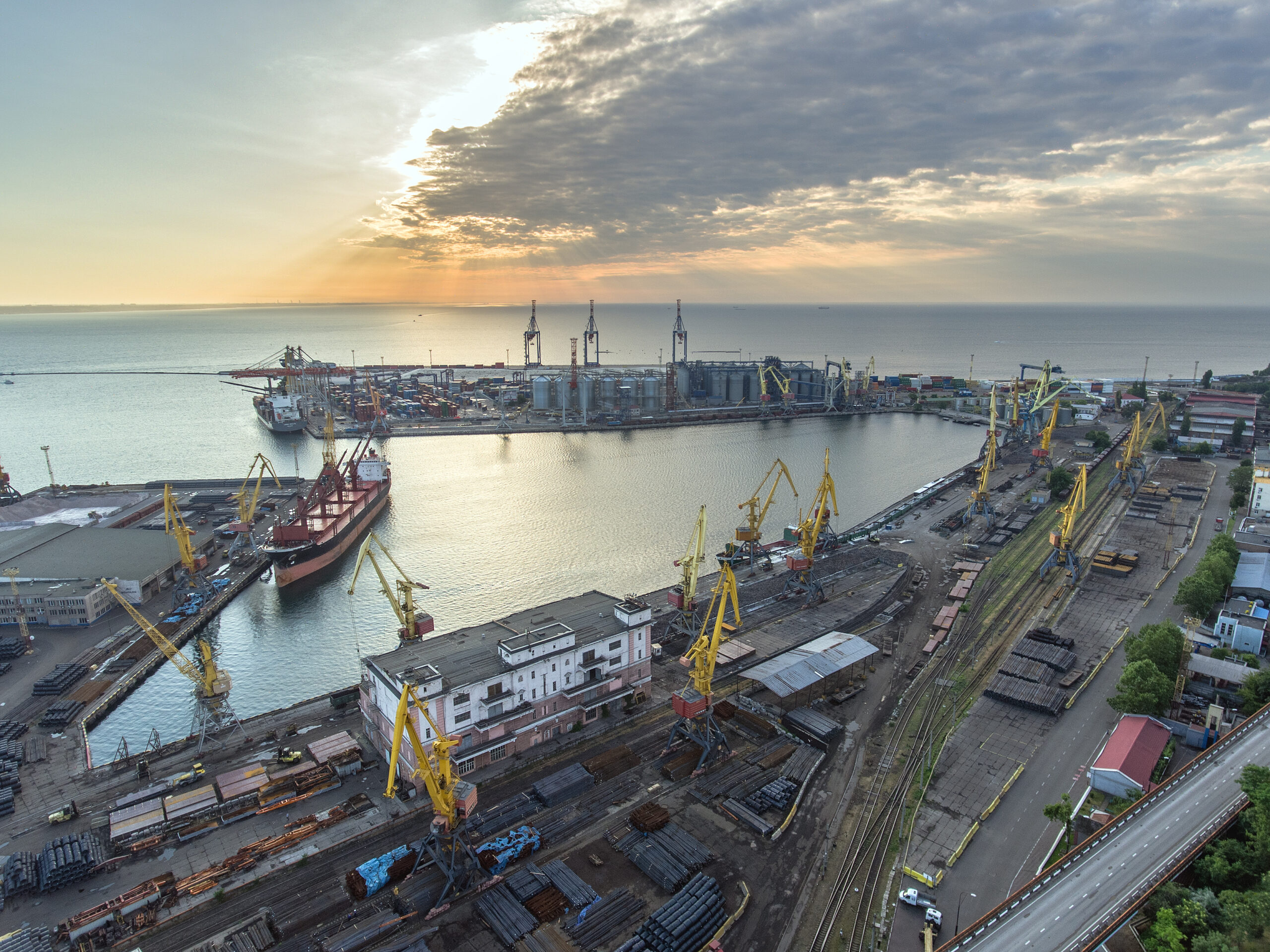By MARIA VIDAL. 02/03/2022
The Russian invasion of the Ukraine – nothing short of a human tragedy – doubtlessly has a huge impact on international trade and shipping. The closure of the Ukrainian ports in the Black Sea and the Sea of Azov will have multiple consequences on the flow of goods and commodities, especially on grain exports where both Russia and Ukraine are among the world’s largest producers.
Ukraine reported last Friday that the Russian Navy shelled a Moldovan-flagged tanker and a Panamanian-flagged cargo ship carrying grain near the Black Sea port of Odessa. The Ukrainian government points out that this attack occurred a day after Russia began an invasion of its country. About 10 merchant vessels have been attacked in total since the conflict started. For example, last Thursday, the Turkish-owned cargo ship “Yasa Jupiter” was attacked off Odessa. Another example is the Moldovan-flagged vessel “Millennial Spirit”, carrying 600 tonnes of diesel, which came under fire from the Russian navy seriously injuring several members of its crew.
Shipowners and Charterers are obviously asking how Russia’s war on the Ukraine is impacting its marine insurance policies and as such ATLANTIC wishes to offer clarity on the subject.
Owner’s P&I liabilities arising from incidents caused by war (which includes civil war, revolution, rebellion, insurrection, or civil strife arising therefrom, or any hostile act by or against a belligerent power or any act of terrorism) are typically covered by the vessel’s hull war risk insurers (and therefore such liabilities are excluded from P&I Club cover). The same exclusion applies to liabilities arising from incidents caused by weapons of war, such as mines and torpedoes and to capture, seizure, arrest, restraint, or detainment.
P&I cover provided under this hull war risk policy will usually only respond up to the insured value of the vessel. From that point the vessel’s P&I Club comes back in and covers P&I war liabilities in excess of the “proper value” of the entered ship (or USD 500 Mio whichever is lesser). Unless otherwise agreed, the limit of this P&I “excess” cover is USD 500 million in the aggregate per occurrence.
In the extreme scenario where war occurs between any of the members of the United Nations Security Council (UK, the USA, France, the Russian Federation, and the People’s Republic of China) the War Hull and War P&I cover will be cancelled. This is referred to as the “Five Powers” clause. The nature of this clause is automatic – whether or not notice of cancellation has been given. In addition to that, cover may be cancelled by the Clubs giving notice – 7 days is the usual market practice. The use of this clause is incredibly rare. The last time IG Club’s invoked it was in the early nineties when the P&I Clubs gave notice in respect of the Arabian Gulf following the Iraqi invasion of Kuwait. In this last scenario, cover is usually reinstated after, for instance, excluding a new war area. It is important to note however, that basic H&M and P&I cover will prevail so ordinary non-war events and accident will still be covered by insurers.
As more sanctions against Russia are triggered the P&I Clubs are obliged to react and remove cover for Russian shipowners or entities that are now listed under US and EU sanctions. Eventually there is a risk that the Clubs might be forced to abandon all of their Russian entries given the fact that they might find themselves unable to pay out claims through the Russian banking system. But the effect of sanctions on the shipping industry can sometimes be less obvious. OFAC has for instance warned charterers to exercise a high level of due diligence about the vessels they charter and advised them to look at previous trades, behaviours and possible AIS gaps. Consequences might even reach the use of certain ports – the operator NCSP (operating terminals in Novorossiysk, Primorsk and Kaliningrad) has been included in the latest sanctions and although calls to that terminals are not per se a sanction infraction, banks might be disinclined to authorise payments involving such entity.
There are many other issues that should be kept under close watch: safe ports in charterparties, closure of ports or changes in their operations, prohibition to import cargoes from certain areas or the increase of insurance costs… The situation is rapidly developing, and it goes without saying that we will monitor it closely and keep you closely informed.

